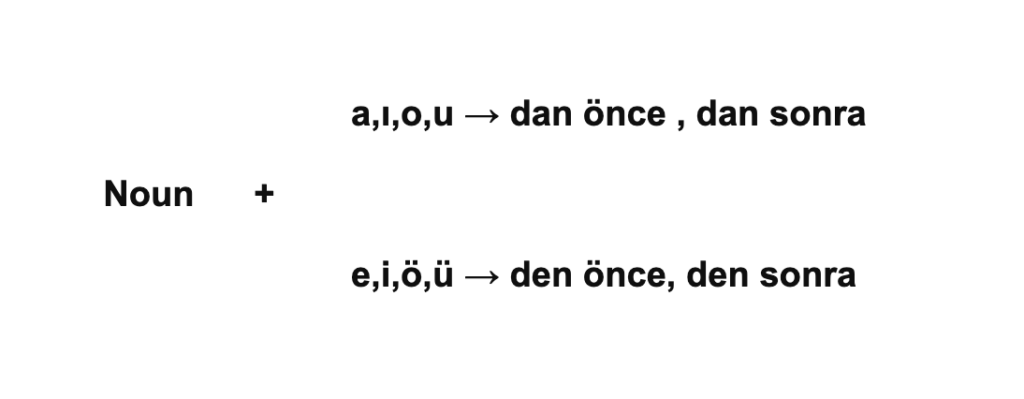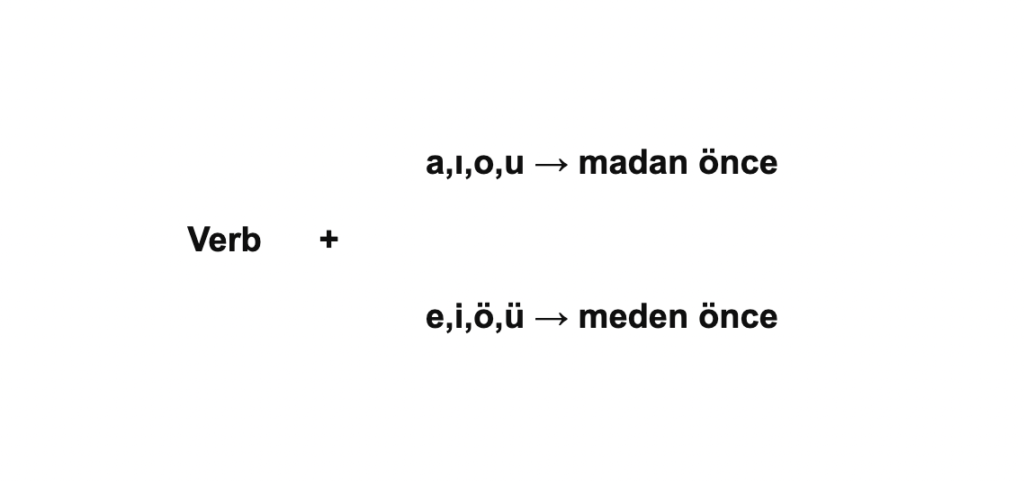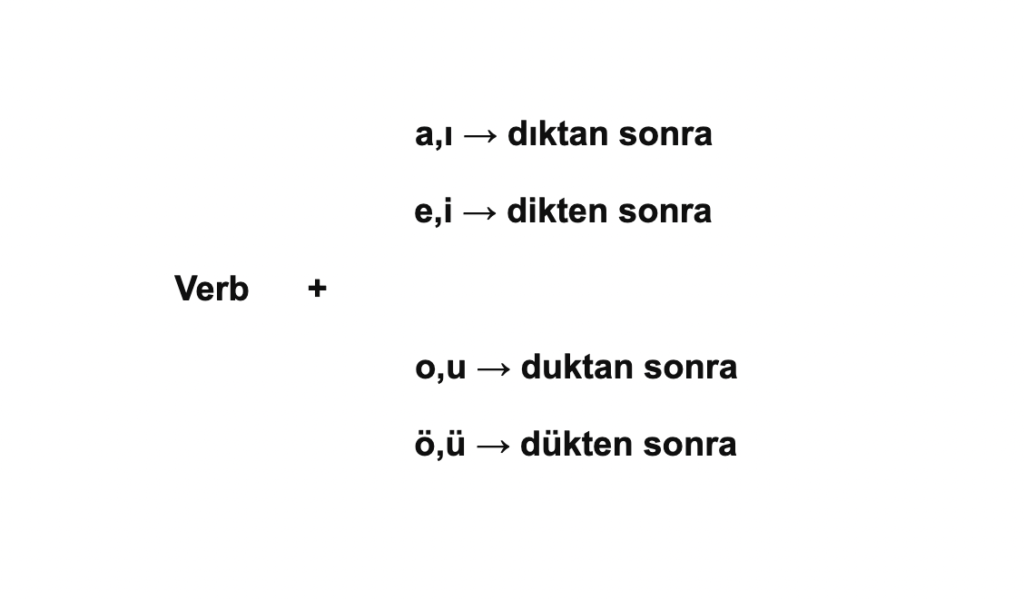Understanding how to express “before” and “after” in Turkish is essential for mastering the language. Turkish has specific structures for these expressions, which vary depending on whether you’re using nouns or verbs. In this guide, we’ll explore how to use “dan önce,” “dan sonra,” “-madan önce,” and “-dıktan sonra” to say “before” and “after” in Turkish.
Table of Contents
1. Using Dan önce / Dan sonra (Before / After with nouns)
In Turkish, to say “before” or “after” with nouns, you use the suffix -dan or -den depending on vowel harmony. The vowel harmony rule in Turkish means that the vowels in suffixes must harmonize with the vowels in the word they are attached to.
- For words with a, ı, o, u vowels, use dan önce (before) or dan sonra (after).
- For words with e, i, ö, ü vowels, use den önce or den sonra.

Voiceless Consonants Rule: If a word ends with a voiceless consonant (f, s, t, k, ç, ş, h, p), -dan becomes -tan and -den becomes -ten.
Examples:
- Sınavdan önce / Sınavdan sonra (Before the exam / After the exam)
- Yemekten önce / Yemekten sonra (Before the meal / After the meal)
- Düğünden sonra balayına Bali’ye gidiyoruz. (After the wedding, we are going to Bali for our honeymoon.)
- Maçtan önce arkadaşlarla birkaç bira içtik. (Before the match, we had a few beers with friends.)
2. Using -madan önce (Before …ing with verbs)
To express “before doing something” in Turkish, you use the suffix -madan or -meden önce added to a verb. The form depends on vowel harmony:
- For verbs with a, ı, o, u vowels, use madan önce.
- For verbs with e, i, ö, ü vowels, use meden önce.

Examples:
- Evlenmeden önce daha mutluydum. (I was happier before getting married.)
- Pazara gitmeden önce alışveriş listesi yaptım. (I made a shopping list before going to the market.)
- Yemek yemeden önce ellerini yıkamalısın. (You should wash your hands before eating.)
3. Using -dıktan sonra (After …ing with verbs)
To say “after doing something” in Turkish, use the suffix -dıktan sonra attached to a verb. Like other suffixes, this changes according to vowel harmony:
- For verbs with a, ı vowels, use dıktan sonra.
- For verbs with e, i vowels, use dikten sonra.
- For verbs with o, u vowels, use duktan sonra.
- For verbs with ö, ü vowels, use dükten sonra.

If the verb ends with a voiceless consonant, the suffix changes to -tıktan sonra, -tikten sonra, -tuktan sonra, or -tükten sonra.
Examples:
- Yemek yaptıktan sonra bulaşıkları yıkadım. (I washed the dishes after cooking.)
- Boşandıktan sonra bir daha kimseyle görüşmedi. (After getting a divorce, he/she didn’t see anyone again.)
- Kaza yaptıktan sonra 3 gün hastanede kaldı. (After having an accident, he/she stayed in the hospital for 3 days.)
